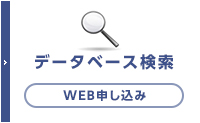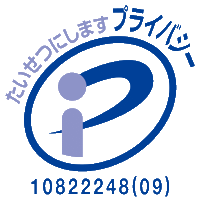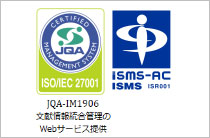ホームIMICライブラリMMWR抄訳2023年(Vol.72)州別の幼児における果物、野菜、砂糖入り飲料の摂取 ・・・
2023/02/17Vol. 72 / No. 7
MMWR72(7):165-170
Fruit, Vegetable, and Sugar-Sweetened Beverage Intake Among Young Children, by State — United States, 2021
州別の幼児における果物、野菜、砂糖入り飲料の摂取 ― アメリカ、2021年
幼少期における良好な栄養状態は最適な成長、発達、健康をサポートする。連邦のガイドラインでは、果物や野菜を毎日摂取し、砂糖を加えることを制限(砂糖入り飲料摂取の制限も含む)、毎日の食事パターンを推奨している。CDCは2021年のNational Survey of Children’s Healthデータを分析し、1~5歳の幼児における果物、野菜、砂糖入り飲料の摂取頻度について保護者からの回答により全国および州別に調査した。データ収集期間は2021年6月~2022年1月とし、回答選択肢は、直近の1週間に果物、野菜、砂糖入り飲料をそれぞれ、摂取していない、1~3回摂取、4~6回摂取、1日1回摂取、1日2回摂取、1日3回以上摂取とした。その結果、全体の加重回答率は40.3%、インタビュー完了率は79.5%、分析対象の幼児は計18,386名であった。果物および野菜を毎日食べていなかった(摂取していない、週1~3回摂取、4~6回摂取と回答)幼児は全体で32.1%および49.1%、砂糖入り飲料を週1回以上飲んでいた幼児は全体で57.1%であった。1歳児が他の年齢層に比較して果物および野菜を毎日食べる傾向が高く、砂糖入り飲料を週1回以上飲む傾向が低かった。人種/民族別では、果物および野菜を毎日食べないのは非ヒスパニック系黒人/アフリカ系アメリカ人(黒人)にて最も多く(各50.7%、64.8%)、非ヒスパニック系白人にて最も少なく(各26.1%、43.4%)、砂糖入り飲料を週1回以上飲む割合は47.5%(非ヒスパニック系多民族)~71.7%(黒人)であった。食料事情別では、十分な栄養を摂れる食生活をしている世帯の幼児に比べ、十分に食べることはできるが食べるべき食品をいつも摂取できると限らない世帯の幼児、時々または頻繁に十分に食べることができない世帯の幼児では、果物や野菜を毎日食べる傾向が低く、砂糖入り飲料を週1回以上飲む傾向が高かった(果物:29.6% vs. 36.9%/46.4%、野菜:46.5% vs. 56.2%/59.0%、砂糖入り飲料:53.1% vs. 69.2%/70.9%)。州別では、果物を毎日食べていない幼児の割合は16.3%(バーモント州)~49.9%(ルイジアナ州)、野菜を毎日食べていない幼児の割合は30.4%(バーモント州)~64.3%(ルイジアナ州)、砂糖入り飲料を週1回以上飲んでいる幼児の割合は38.8%(メイン州)~79.3%(ミシシッピ州)と幅があった。20州では半数を上回る幼児が野菜を毎日食べておらず、40州およびワシントンDCでは半数を上回る幼児が週1回以上砂糖入り飲料を飲んでいた。連邦の栄養プログラムと州の製作およびプログラムは、幼児が住む場所、学んだり遊んだり場所にて果物や野菜、健康にいい飲料へのアクセスと入手の可能性を向上させることにより、食事の質の向上をサポートする可能性がある。
References
- US Department of Agriculture. Dietary guidelines for Americans 2020–2025. Alexandria, VA: US Department of Agriculture, Food and Nutrition Service; 2020. <https://www.dietaryguidelines.gov/sites/default/files/2020-12/Dietary_Guidelines_for_Americans_2020-2025.pdf>
- Schwarzenberg SJ, Georgieff MK, Daniels S, et al.; Committee on Nutrition. Advocacy for improving nutrition in the first 1,000 days to support childhood development and adult health. Pediatrics 2018;141:e20173716. PMID:29358479 <https://doi.org/10.1542/peds.2017-3716>
- Yoshida Y, Simoes EJ. Sugar-sweetened beverage, obesity, and type 2 diabetes in children and adolescents: policies, taxation, and programs. Curr Diab Rep 2018;18:31–47. PMID:29671076 <https://doi.org/10.1007/s11892-018-1004-6>
- Malik VS, Popkin BM, Bray GA, Després JP, Hu FB. Sugar-sweetened beverages, obesity, type 2 diabetes mellitus, and cardiovascular disease risk. Circulation 2010;121:1356–64. PMID:20308626 <https://doi.org/10.1161/CIRCULATIONAHA.109.876185>
- Evans EW, Hayes C, Palmer CA, Bermudez OI, Cohen SA, Must A. Dietary intake and severe early childhood caries in low-income, young children. J Acad Nutr Diet 2013;113:1057–61. PMID:23706351 <https://doi.org/10.1016/j.jand.2013.03.014>
- Vos MB, Kaar JL, Welsh JA, et al.; American Heart Association Nutrition Committee of the Council on Lifestyle and Cardiometabolic Health; Council on Clinical Cardiology; Council on Cardiovascular Disease in the Young; Council on Cardiovascular and Stroke Nursing; Council on Epidemiology and Prevention; Council on Functional Genomics and Translational Biology; and Council on Hypertension. Added sugars and cardiovascular disease risk in children: a scientific statement from the American Heart Association. Circulation 2017;135:e1017–34. PMID:27550974 <https://doi.org/10.1161/CIR.0000000000000439>
- Gurzo K, Lee DL, Ritchie K, et al. Child care sites participating in the Federal Child and Adult Care Food Program provide more nutritious foods and beverages. J Nutr Educ Behav 2020;52:697–704. PMID:32268971 <https://doi.org/10.1016/j.jneb.2020.02.009>
- Eicher-Miller HA, Zhao Y. Evidence for the age-specific relationship of food insecurity and key dietary outcomes among US children and adolescents. Nutr Res Rev 2018;31:98–113. PMID:29318982 <https://doi.org/10.1017/S0954422417000245>
- Mennella JA, Reiter AR, Daniels LM. Vegetable and fruit acceptance during infancy: impact of ontogeny, genetics, and early experiences. Adv Nutr 2016;7(Suppl):211S–9S. PMID:26773029 <https://doi.org/10.3945/an.115.008649>
Copyright © 2013 International Medical Information Center. All Rights Reserved.












